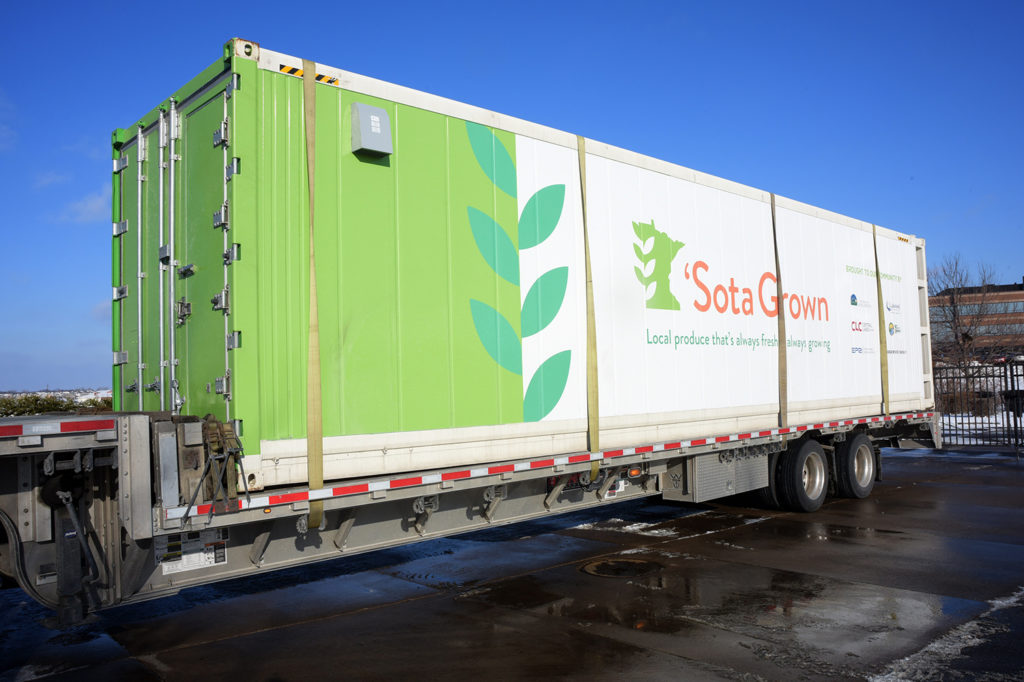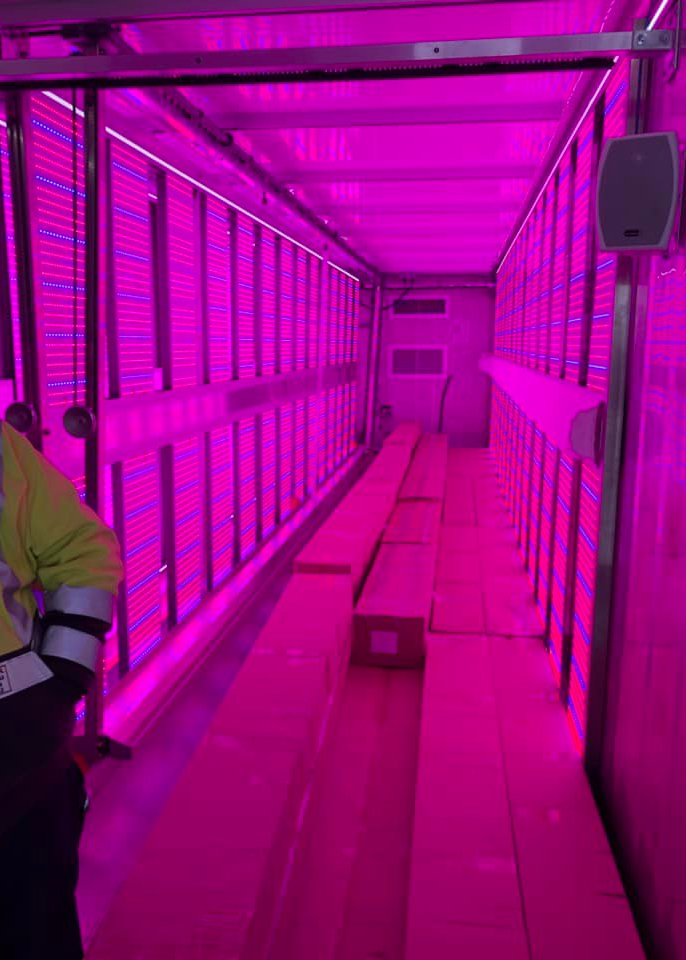
A Minnesota distribution co-op is collaborating with its power supplier and community partners to help advance indoor agriculture and provide important data on energy use for year-round production of fresh vegetables.
As part of an Electricity Power Research Institute initiative, Todd-Wadena Electric Cooperative is providing electricity to a shipping container fitted to produce sustainable kale crops for distribution within the co-op’s service territory. TWEC’s generation and transmission co-op, Great River Energy, is one of six utilities in the country working with EPRI on a two-year study designed to expand the knowledge base for commercial-scale indoor food production.
“The indoor food production container will also provide valuable data for utilities,” said Dan Carlisle, president and CEO of Wadena-based TWEC. “In looking at the electric load the container requires to operate in our region, we can use this data for electricity load planning and evaluating beneficial rate designs.”
A standard freight container occupying about 500 square feet of surface provides about 320 cubic feet of growing space. Serial plantings of kale over several weeks should eventually produce a steady flow of harvestable crops.
“We are looking to get about a hundred pounds of produce per week out of the container once it’s up and fully operational,” said Jill Eide, a member commercial, industrial and agricultural strategist for Maple Grove-based Great River Energy. “One container should produce the same amount of food as one acre of land.”

The production formula could be scaled for use in any under-utilized interior space, she said. “These growing methods could be used in a 120,000-square-foot warehouse or a 4-acre-sized warehouse.”
Other trackable data will include water consumption and reuse and the impact of seasonal climate changes on production and operations. Kale was selected as the test crop because of its seven-to-10-week growing cycle from planting to harvest.
While EPRI and Great River Energy are supporting the project financially, management and coordination will be handled by TWEC and its local partners.
“Students from Central Lakes College’s Horticulture and Agriculture degree programs will have a unique opportunity to learn firsthand about sustainable agriculture practices,” said Carlisle.
The produce will be turned over to the Lakewood Health System for distribution through its Food Farmacy nutrition program, which helps expand the availability of fresh produce to households that struggle to get enough to eat.
“Todd-Wadena is excited to be part of this research project with EPRI and Great River Energy, but even more so because of the community partnerships with Lakewood Health System and Central Lakes College,” said Allison Uselman, TWEC’s member services manager.
Derrill Holly is a staff writer at NRECA.